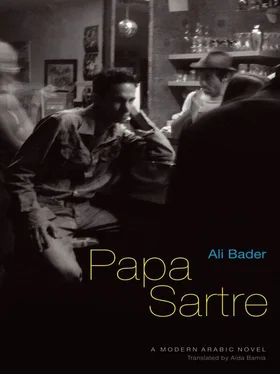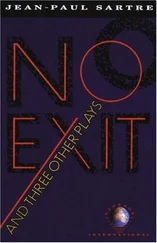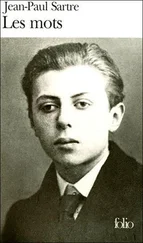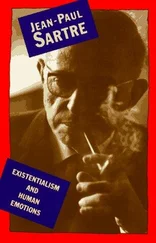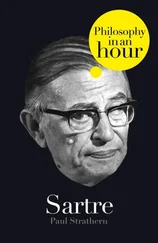“I don’t believe you. It is this cowardly existentialist, this base fellow who did it. Just be patient, and I, Edmond son of Adileh, will wash away this dishonor and take my revenge.”
86
That evening Faraj, Elias Khaddouri, and Edmond held serious discussions to decide what action must be taken. The servants saw them, and two of them swore to me that they heard the three men talk about killing Abd al-Rahman in an act of vengeance. I met those two servants, Boulos and his sister Malakin, in their house in Camp Sarah near the Zahleh markets. They passed this information on to me, but I couldn’t confirm that this incident was behind the death of one of Iraq’s greatest philosophers of the sixties. Nor did any of the documents I had confirmed this as a possibility. A document provided by Sadek Zadeh maintains that the philosopher committed suicide. A possible scenario can be based on the following reasoning: Abd al-Rahman’s physical and mental condition was deteriorating, which might have led him to have a nervous breakdown, and end his life with a self-inflicted gunshot. I could imagine him thinking about the millions of people who went about their business with vulgar enthusiasm but without seizing the essence of life, and wanting to set an example for them. Before killing himself he would have felt everything around him was nauseating, and that the objects in his room were closing in on him. He took a gun from a drawer and pointed it calmly at his chest. Germaine had just come out of the bathroom when she heard the shot. She ran to his room and shouted from behind the locked door, “What have you done, what have you done?” The servants broke the door down and found him lying on the floor with one red spot on the left side of his chest.
87
Naturally, this scenario needed to be verified. It was meant to convince us that nausea and nihilism as an aspect of life — and not its nonexistence (the Iraqi intellectuals of the time did not differentiate between the two) — were the reasons for the philosopher’s suicide. But I had my doubts, because for the al-Sadriya philosopher nausea motivated him to embrace life, not to reject it. It was a way to shout out against the stillness of life, and an incentive for an enthusiastic approach to it, rather than a reason for asceticism and the torture of the body. I had to go beyond this document that Sadeq Zadeh described as the most important.
I had to verify a second theory: the Trotskyite conspiracy. It was suggested as the Khaddouri family sat in their garden, near the fountain one afternoon, together with Edmond and Elain, drinking tea and eating cookies. “Let’s kill him,” said Edmond, biting into his cookie.
“No,” said Elain in her Jewish accent, “we need to do something that won’t leave evidence.” Nadia’s mother wondered how this could be accomplished, and Elain explained, “We need to create a scandal.”
Faraj approved wholeheartedly: “Excellent idea!”
88
Ismail went to meet Edmond at his house on Anastas al-Karmali Street. Edmond met him at the door and took him to a table filled with a variety of foods worthy of a banquet: fish, chicken, many kinds of sweets, fruits, flatbread, and plenty of whiskey. The conversation turned around the life of the poor and the revolution that had brought down the bourgeoisie, feudalism, and the Sirkaliya system.
When Ismail left Edmond’s house he was totally drunk and staggering. His eyes twinkled as he examined the boxes of sweets his host had given him.
89
Soon after his meeting with Edmond, Ismail started visiting the philosopher’s wife while her husband was absent. A week before his death Abd al-Rahman told his wife that he would not be spending the night at home, but she didn’t seem to care and went on washing her young daughter’s face.
Ismail arrived after midnight, and when he learned that her husband was absent he decided to stay with Germaine until dawn. They ate and drank, and as he was about to leave she asked him to go with her, naked, up to the roof.
90
She was elated, and when she reached the roof she lay down on the bed. Ismail did the same. They resumed their lovemaking to the sound of music under the clear summer sky. They felt they were on another planet far from the struggles of daily life.
The minaret of the Siraj al-Din Mosque was close to the house and quite high. Germaine said to Ismail, “Look at the minaret. It’s as if someone is watching us.” He laughed, looked at the minaret and then the empty street, where only a barking dog and the whistle of the guard could be heard, and reassured her, “No, the imam won’t watch us.” Germaine got up, covered herself with a sheet, and looked at the courtyard of the mosque. She saw a tree bearing small fruit hidden from passersby by the high wall. She turned to Ismail, ran her fingers across his body and said, “I want one of these apples.” Ismail was surprised but he complied. He put on his black trousers and went down to the courtyard. As soon as the guard moved away, he climbed the tree and picked as many green apples as he could. When he heard someone coming down the minaret’s steps, he quickly hid the apples in his pants, and clambered down. Two hands grabbed him immediately, one by the neck and the other by his pants. It was the imam, who exulted, “I’ve caught you, sinner.” The guard came over, and by the light of the moon he saw Ismail’s pants filled with the mosque’s apples. Ismail’s pleas for mercy went unheeded. The guard, proud and happy to have finally caught a scofflaw, shouted at him, “You are a thief, and you steal from a mosque!”
The imam added, “He is also an adulterer.”
When Ismail sought to correct him, “Only a thief,” the imam pronounced, “I was watching you from the minaret. You delayed my call to prayer, you sinners.”
Hoping to confound him, Ismail suggested, “Maybe you were watching a porn flick, imam?”
The guard didn’t like Ismail’s rudeness. He told him to take off his pants, leaving him totally naked, and tied him to a tree. Meanwhile the imam had climbed the minaret and invited the inhabitants of al-Sadriya to come and see the adulterer.
All this took place as Germaine, covered only with a sheet, watched, helpless and mortified, from her roof.
91
The scandal must have been more than Abd al-Rahman could handle. The documents confirm that he died one week after the news broke of his wife’s liaison with his colleague. His life turned upside down; Germaine returned to Paris; Ismail disappeared; Edmond immigrated to Australia; and no one knew what happened to Nadia. Was this the Trotskyite plot hatched by Edmond and Ismail? Did Ismail betray Abd al-Rahman on his own? Was he, a betrayer by nature, pushed to do so? Was it the wife who wanted to cheat on a husband busy with his nausea, his dissolute life, and the prostitutes in the nightclubs?
It was up to me to answer all these questions and finish up the philosopher’s biography I had started writing three months earlier. I had been working on it nonstop, totally involved in it, in order to receive the money promised to me by Hanna Yusif and Nunu Behar.
The Philosopher’s Journey
One quiet morning, having almost finished the philosopher’s biography, I woke up early and pulled open the curtains of the casement overlooking the street. I opened the window and felt the cold air hit my face. The sun was pale, and its rays spread over the upper stories of the buildings, hotels, and luxurious houses. The smell of ink reminded me of the drama of lost-love stories I had lived with ever since I had dived into the maze of documents in search of the words that gradually formed themselves into the stories of real people.
Those words shaped the philosopher’s distorted hands, his large, handsome chest, and sleepy look. They put some order into the flurry of documents that encumbered my desk and my room, and inspired the writing of the biography: there were documents, old newspapers, magazines thrown everywhere, piles of rough copies, and photographs. The furniture in the apartment was covered with dust. My dog barked nonstop after I tied him to the bedpost with my belt to prevent him from disturbing the papers or breaking the pens. There were leftover bits of food: dark bread crusts that looked like a stain on the table, an open bag, and the remains of a hard-boiled egg.
Читать дальше
